
Active arbitrage fosters Brazil's products spot market
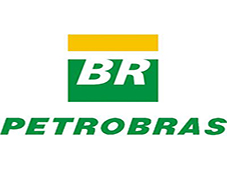
Petrobras is temporarily facilitating withdrawals of contracted product for buyers in response to a significant drop in domestic demand, after states adopted travel restrictions in response to the Covid-19 pandemic in mid-March. The decision follows other measures by local fuel distributors, such as BR and Raizen, which at the end of March informed suppliers they would extend the schedule for ethanol withdrawals under long-term contracts in response to a steep drop in E27 gasoline and hydrous ethanol consumption.
The temporary change is giving distributors more freedom to arbitrate between purchases from Petrobras' refineries and negotiations with trading companies for imported and traded products from the ports of Santos and Paranagua.
Nymex RBOB gasoline prices used to hedge imported gasoline have declined substantially since March, favoring the arbitrage for import and resale of gasoline and diesel and ensuring spot market liquidity in both ports despite anemic demand.
Santos and Paranagua are among the most active hubs, where trading firms sell imported gasoline at differentials to Petrobras' Paulinia (Replan) and Araucaria (Repar) refinery prices, respectively.
Discounts to wholesale prices at Repar refinery reached R200/m³ (14¢/USG) in the week ended 13 March in Paranagua, following a sharp drop in RBOB gasoline future contracts in the same period. Futures contracts expiring in May fell 34pc between 6-13 March to just 0.91¢/USG as a demand shock caused by the economic fallout of the Covid-19 pandemic was met by increased oil supply as Saudi Arabia and others turn on the taps to defend market share.
The average price of gasoline sold at Petrobras refineries fell 4.5pc to R1.533/l excluding taxes during the same period.
The gradual opening of Brazil's downstream sector starting in 2016 has not displaced Petrobras as the dominant player in the market and main price reference for importers trading gasoline in the domestic marketplace. The firm is responding to a strong reduction in demand by reducing throughputs at its domestic refineries, where utilization rates fell to 60pc in April from almost 74pc in March, as well as prioritizing the production of marine fuel compliant with International Maritime Organization rules on sulphur emissions for export.
Petrobras organized two auctions for the sale of gasoline in April. The company held a 50mn l auction at Repar and a 25mn l auction at the Canoas refinery (Refap), according to market participants.
The company did not confirm the auction details but told Argus it organized six auctions for diesel and gasoline in various delivery hubs since January.
"The auction model is quite common in several markets and we decided to use it in order to complement the regular offer of our products in an efficient, transparent and isonomic way," the company said.
By Amance Boutin

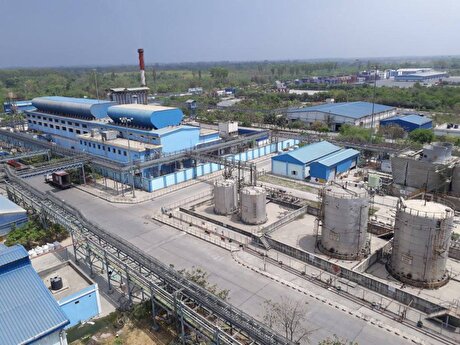
Hindustan Zinc to invest $438 million to build reprocessing plant

Gold price edges up as market awaits Fed minutes, Powell speech

Glencore trader who led ill-fated battery recycling push to exit

UBS lifts 2026 gold forecasts on US macro risks

Emirates Global Aluminium unit to exit Guinea after mine seized

Roshel, Swebor partner to produce ballistic-grade steel in Canada

Iron ore price dips on China blast furnace cuts, US trade restrictions
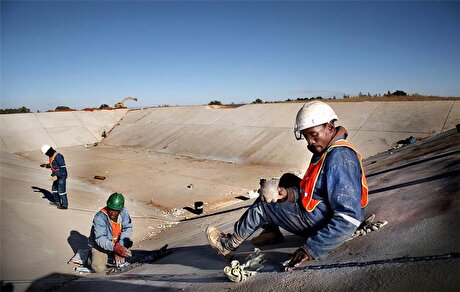
South Africa mining lobby gives draft law feedback with concerns

EverMetal launches US-based critical metals recycling platform

Barrick’s Reko Diq in line for $410M ADB backing

Gold price gains 1% as Powell gives dovish signal

Electra converts debt, launches $30M raise to jumpstart stalled cobalt refinery

Gold boom drives rising costs for Aussie producers
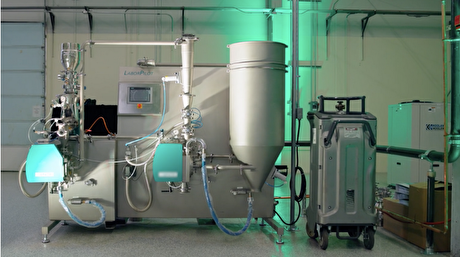
Vulcan Elements enters US rare earth magnet manufacturing race
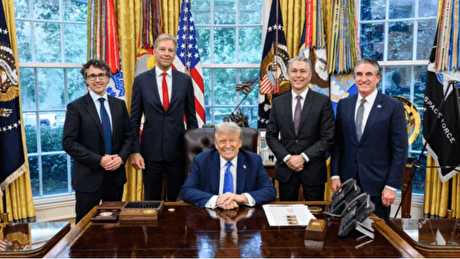
Trump raises stakes over Resolution Copper project with BHP, Rio Tinto CEOs at White House
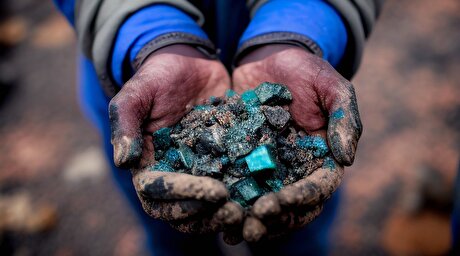
US seeks to stockpile cobalt for first time in decades

Trump weighs using $2 billion in CHIPS Act funding for critical minerals

Nevada army depot to serve as base for first US strategic minerals stockpile

Emirates Global Aluminium unit to exit Guinea after mine seized

Barrick’s Reko Diq in line for $410M ADB backing

Gold price gains 1% as Powell gives dovish signal

Electra converts debt, launches $30M raise to jumpstart stalled cobalt refinery

Gold boom drives rising costs for Aussie producers

Vulcan Elements enters US rare earth magnet manufacturing race

US seeks to stockpile cobalt for first time in decades

Trump weighs using $2 billion in CHIPS Act funding for critical minerals

Nevada army depot to serve as base for first US strategic minerals stockpile

Tailings could meet much of US critical mineral demand – study
















